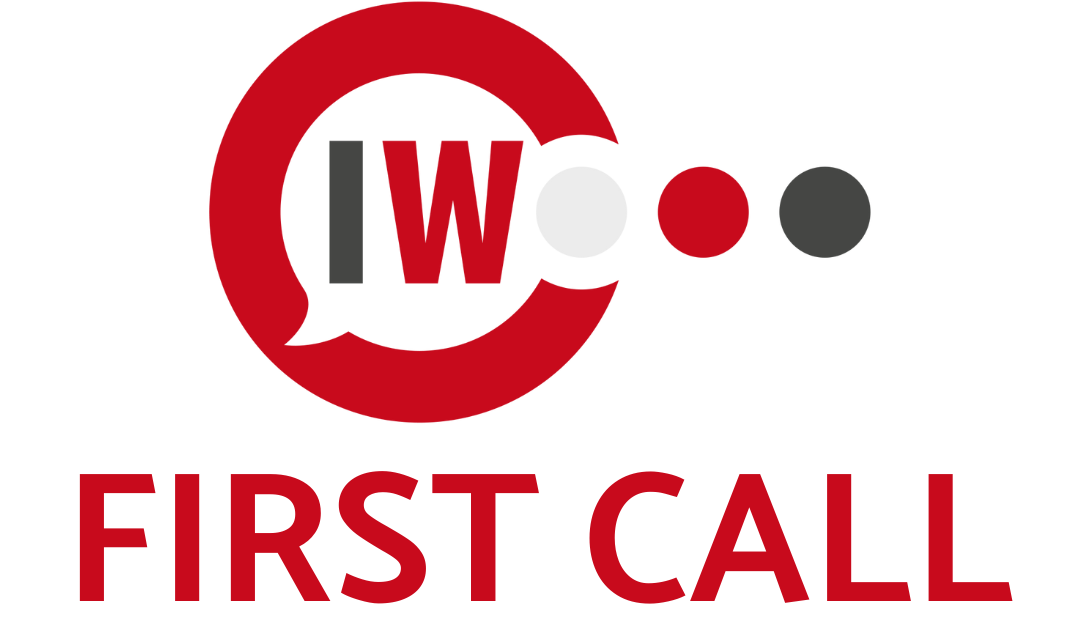The insurance sector is no stranger to transformation, having reinvented itself in the face of disruptions like the crash of the housing market, the cyber-boom, digital technology, and more over the decades. Today, insurance agencies and companies face a new wave of change, driven by rising costs, competition, regulations, and customer expectations. To navigate these challenges, insurers are rethinking their operating models and increasingly embracing a strategy that may seem counterintuitive – outsourcing core business processes to specialized partners.
This trend, known as insurance process outsourcing, is rapidly gaining steam as forward-thinking insurers partner with business process outsourcing (BPO) providers to improve efficiency, tap new capabilities, and refocus on value-added activities. The implications of this shift are profound, essentially redefining the structure of the insurance industry.
The Pressures Driving Insurance Business Process Outsourcing

Caught in the maelstrom of the need to stay agile has continuously put immense pressure on companies in the insurance industry. So, to stay competitive, they need to fundamentally transform their operating models.
This has led more and more insurance providers to explore outsourcing certain business functions as a way to control costs, tap specialized capabilities, and gain operational agility. By harnessing the expertise of dedicated business process outsourcing partners, insurers are navigating out of the storm and charting a course toward improved performance.
The Need for Cost Reduction
With insurance premiums rising faster than inflation, customers are demanding lower rates. At the same time, insurers face pressure from shareholders to improve profit margins. Outsourcing repetitive back-office tasks to specialized third-party providers overseas can significantly reduce labor expenses. This allows insurers to pass on some of those savings through more competitive pricing.
Lack of Specialized Expertise
Many insurance processes require niche expertise that is difficult to develop and maintain in-house. Policy administration, for example, necessitates extensive knowledge of changing regulations. Outsourcing to a business process outsourcing partner with deep domain expertise in such areas eliminates the need for insurance companies to constantly train internal staff.
Increasing Regulatory Burdens
In recent years, insurance providers have had to comply with a growing number of strict regulations. This not only increases costs but also carries the risk of hefty fines for non-compliance. Partnering with experienced business process outsourcing providers can help insurers keep up with new regulations in a cost-effective manner.
Need for Operational Agility
In today’s dynamic business landscape, insurers must be able to quickly scale operations up or down. Maintaining an in-house staff for activities prone to fluctuations in volume can be inefficient. Outsourcing these processes provides greater flexibility to adjust as business needs change.
The Shift Towards Outsourcing Core Processes
Traditionally, insurers have been hesitant to outsource core processes, preferring to keep them in-house for better control and compliance. But this is changing as the benefits of outsourcing critical operations become clearer.
| Process | In-house | Outsourcing |
| Policy Administration | High labor costs for account managers and customer service staff | 30-40% cost reduction through lower labor rates and automation |
| Claims Management | Salaries and overhead for in-house or private adjusters and settlement staff | 20-30% cost reduction by leveraging third-party administrator’s scale |
| Customer Service | Expensive to maintain call center infrastructure and staff | 40-50% cost reduction through outsourced, offshore call centers |
Policy Administration
Policy administration includes key tasks like underwriting, premium calculations, and policy issuance. Many insurers are now outsourcing parts or all of this process to realize significant productivity improvements. Specialized business process outsourcing partners are able to take on policy administration efficiently thanks to workflow automation and analytics.
Claims Management
The entire claims cycle – from first notice of loss to settlement – is being entrusted to outsourcing partners by some insurers. Third-party administrators can efficiently handle injury assessments, loss adjustments, and litigation management thanks to their dedicated claims processing resources and expertise. This frees up insurer staff to focus on higher-value functions.
Customer Service
Increasingly, insurers are outsourcing customer service activities ranging from sales and service inquiries to complaint management. Business process outsourcing partners are able to provide 24/7 multilingual support from centralized call centers staffed by trained insurance experts. This delivers big improvements in customer satisfaction at lower costs.
Key Benefits of an Insurance BPO Service Provider

When executed properly, outsourcing core insurance processes to specialized business process outsourcing partners offers many advantages:
Cost Savings: Outsourcing can reduce operational costs by up to 40% by eliminating overhead expenses associated with in-house processing. These savings can then be passed on to customers.
Improved Efficiency: BPO providers bring process optimization, workforce management, and automation to drive higher productivity. This results in faster processing times and higher throughput.
Enhanced Customer Service: Customers benefit from 24/7 multilingual support, quicker turnaround times, and consistent service levels offered by outsourcing partners’ dedicated resources.
Increased Agility: Outsourcing provides greater flexibility to scale operations up or down quickly in response to changing business volumes or new product launches.
Advanced Technology: BPO partners invest heavily in technologies like artificial intelligence, predictive analytics, and robotic process automation to drive continuous improvements in quality, accuracy, and cycle times.
Regulatory Compliance: Specialized outsourcing partners maintain extensive knowledge of the latest regulations across multiple jurisdictions. This expertise ensures processes are handled in full compliance with laws and guidelines.
Evaluating Prospective Outsourcing Partners
Not all business process outsourcing partners are equal. Here are some key factors for insurance companies to consider when selecting an outsourcing provider:
Industry Experience: Look for established partners with substantial experience handling insurance processes. Domain expertise is vital for managing complex policy and claims administration.
Security: Data security should be a top priority. Evaluate partners’ information security protocols, technologies, and certifications to ensure they can safely handle sensitive customer data.
Scalability: The partner must have the infrastructure and staffing to easily scale up or down as your business needs change. Lack of scalability can lead to disruptions.
Technology Capabilities: Advanced technologies like automation and AI are key to driving process improvements. Assess partners’ technology roadmap and expertise in leveraging these tools.
Cultural Fit: Choose a partner whose organizational culture and values align with your own to enable a harmonious long-term relationship.
The Future of Insurance Process Outsourcing
As insurance process outsourcing delivers quantifiable benefits, its adoption is an elegant way to accelerate. According to Allied Market Research projections, the global insurance BPO market is expected to reach $24.6 billion by 2032, from $7.9 billion in 2022, growing at a CAGR of over 12.3%.
Increasingly, forward-thinking insurers will move beyond basic back-office tasks to outsource core processes like policy administration and claims management. Insurers that embrace outsourcing as part of a broader digital transformation strategy will gain a distinct competitive advantage. With the right outsourcing approach from trusted partners like IWFirstCall, companies in the insurance industry can enhance customer experience, drive growth, and deliver shareholder value in the long term.
FAQ
Why should a company consider outsourcing insurance operations?
Insurance outsourcing can provide companies several benefits such as improved process management, streamlined business operations, and increased profitability. By leveraging business process outsourcing services, companies can focus on their core competencies while the BPO provider handles their insurance operations such as insurance claims and administration services.
What types of insurance BPO solutions are available?
The spectrum of insurance business process outsourcing solutions includes new business processing, policy administration, claims management, back office services, customer care, and analytical services. These outsourcing solutions are designed to handle your insurance needs efficiently and effectively.
What is the role of analytics in insurance outsourcing?
Analytics play a crucial role in providing insight into customer demands, identifying process improvement opportunities, and making data-driven decisions. In the context of insurance outsourcing, analytics can help businesses better understand customer behaviors, streamline processes, and optimize operations.
How does an outsourcing model work in terms of insurance operations?
An outsourcing model in terms of insurance operations involves entrusting certain operations to an external BPO company. The provider takes responsibility for key insurance operations like claim processing, underwriting, and policy administration, providing services and solutions that enhance business process improvement and customer satisfaction.
How do insurance outsourcing services help deliver a better customer experience?
Insurance outsourcing services focus on streamlining processes and delivering effective customer service. They use best-in-class practices to resolve customer issues promptly, handle claims efficiently, and provide easy policy administration, thereby improving the overall customer experience.
What is the potential impact on the cost when we outsource insurance processes?
Outsourcing insurance processes can result in significant cost savings. It helps lower costs by eliminating the need to maintain a large in-house team and investing in training, and infrastructure. In addition, the outsourcing services provider can offer expertise and efficiency that can further bring down operational costs.
Are there any specific advantages to using insurance BPO companies for handling insurance claims?
Yes, using insurance BPO companies brings several advantages, such as the timely processing of insurance claims, reduction in errors, compliance with regulatory requirements, and improved customer satisfaction. They have experienced professionals who have an in-depth understanding of the insurance industry and provide efficient claim-handling services.






